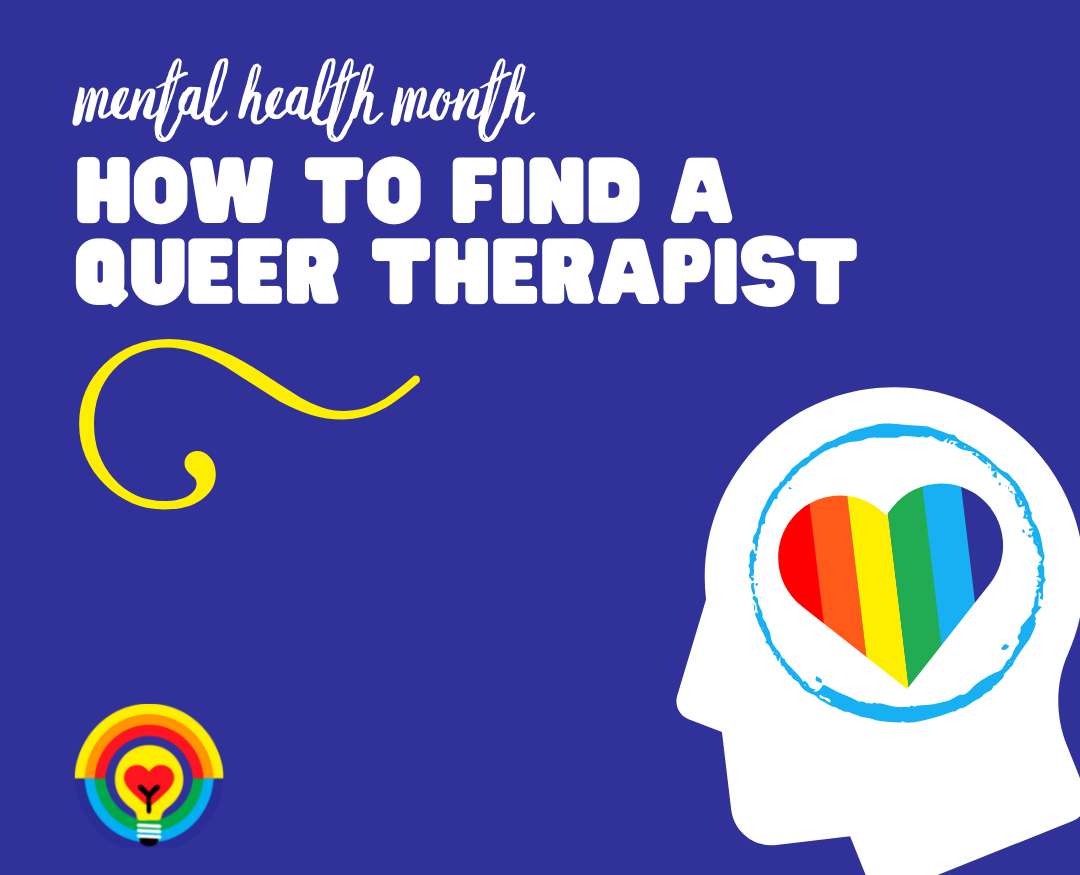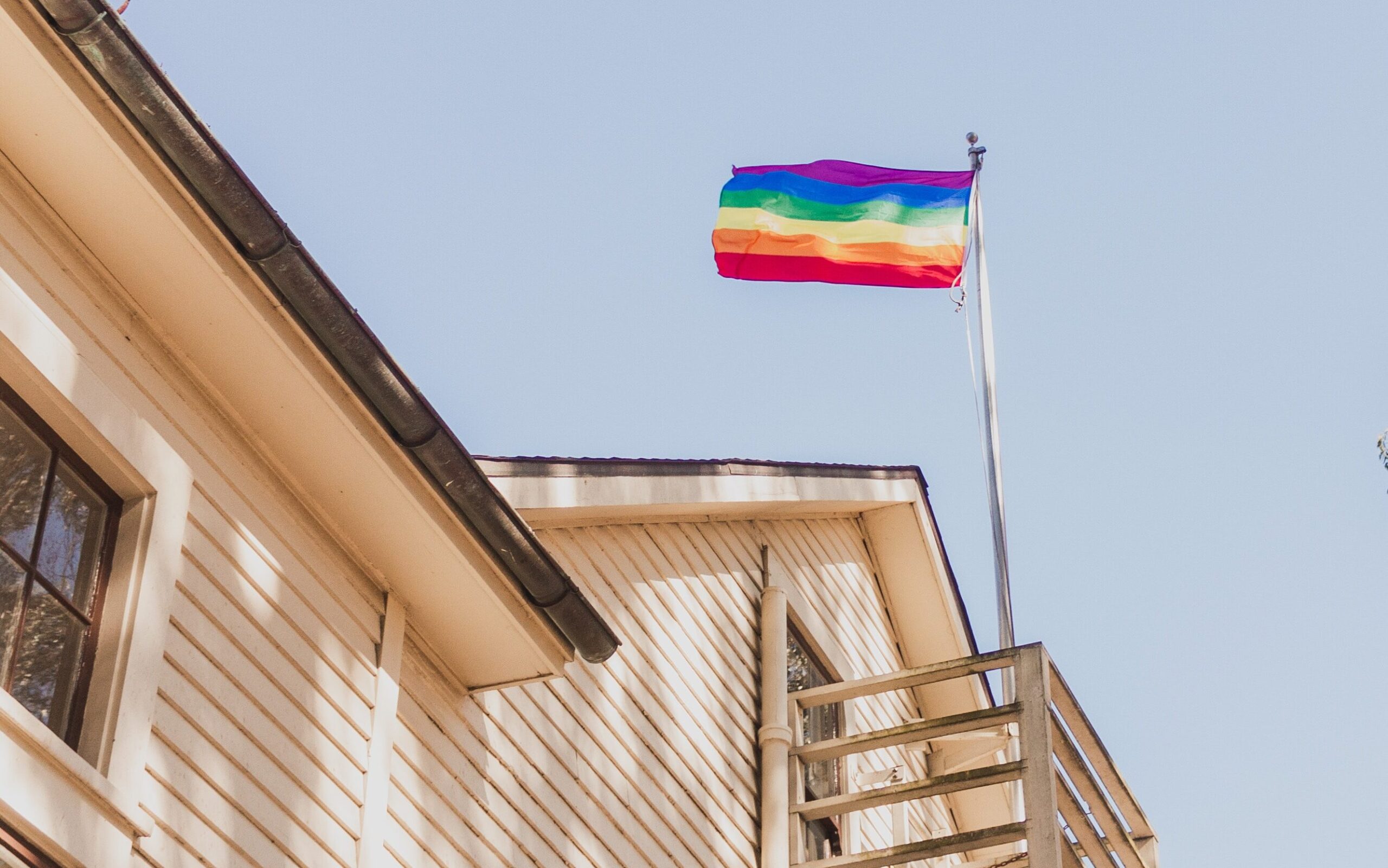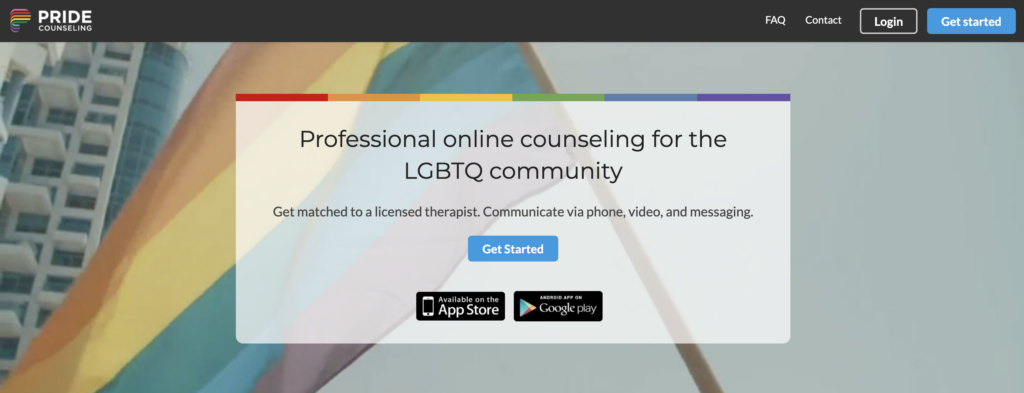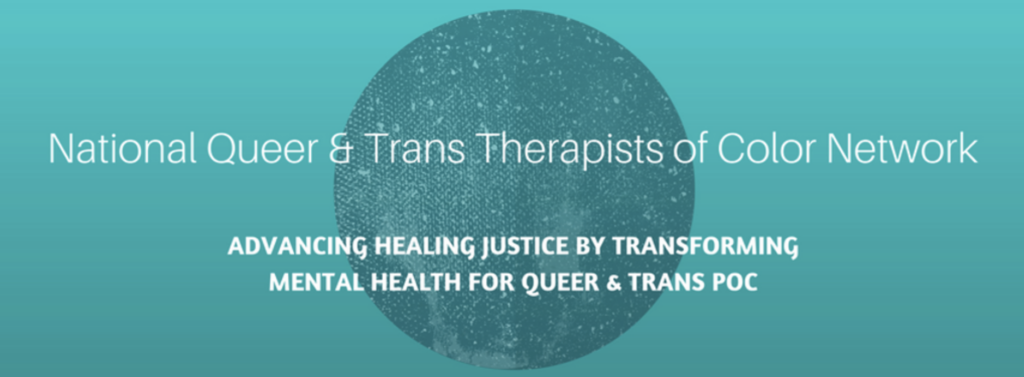
How to Find a Queer Therapist: Mental Health Month
In recognition of Mental Health Month, I’m sharing a story on how difficult it was to find a queer therapist, why I wanted a queer therapist, and some tips for finding one.
Why I Wanted a Queer Therapist
I work for two therapists, writing blog content for them and creating social media posts. One thing I learned from working for them is that it’s actually vital to know what qualities of a therapist will make you comfortable in talking to them. “Don’t be hesitant. Don’t embarrassed. This is for you,” they would say. If you know you’re not going to be comfortable talking about your issues with a man, don’t humor the therapist search with men therapists. If talking to someone who’s been through your challenges will make talking about them easier, read their bios and see what they’re disclosing about their own life.
Empathy only a queer therapist can provide
I knew at the start of my therapist search that I wanted a queer therapist. I know I’m a lesbian. I’ve known for years now. At 26, I’m not having much issue with sexual/romantic identity. It’s not about needing to work through LGBTQ issues that made me certain a queer therapist was a must. I love everyone in my life who’s accepted my identity. I know mostly everyone who adjusted to the “new me” loves me and means well, but their unconscious actions can hurt my feelings, and I want to be able to talk about that with a therapist who understands where I’m coming from.

If I’m sad about the fact that my dad always asks my sister and friends when they are marrying their boyfriends without ever asking me when I’m marrying my girlfriend, I need to know my therapist will understand why I’m frustrated. For people who haven’t been in this situation, they don’t see how hurtful or reductive or disrespectful that can feel. If I’m upset that my friends and roommates struggle to use my new pronouns, I need the guaranteed space to feel validated in my response to it.
If my therapist were cis and straight, they simply wouldn’t empathize with all the micro-stressors of daily life that queer people face. The primary reason I need therapy has nothing to do with being queer, but my daily challenges are inextricable from my identity. I have no energy to waste worrying about whether or not I thought my cisgender and straight therapist thinks I’m overreacting to situations that occur because of my identity when it’s a situation they cannot completely grasp themselves.
If my therapist were queer, even without matching my exact sexual/romantic and gender identity and the same pronouns, I know the empathy and understanding of my situations could provide a baseline of security in my therapeutic relationship with them. After nearly two decades of censoring out the pieces of my life that included my identities to the non-queer ear, I know myself enough to acknowledge the fact that talking to any non queer therapist would block this part of me from accessing therapy. In order to make sure therapy might be a worthwhile avenue to improve my mental health, I had to choose a queer therapist.
How to Find a Queer Therapist
Finding a queer therapist proved no easy task. First, I searched therapist databases like Psychology Today that let you check a box for the therapists’ sexuality. But after not finding someone that resonated with my preferred therapy styles and worked with my budget/insurance, I searched elsewhere.
Pride Counseling

I made an account with PrideCounseling, a branch of BetterHelp online therapy. Starting with Pride Counseling guarantees an LGBTQ therapist and matches you to one based on a questionnaire when you sign-up. Although the company offers reduced fees for low-income users, you have to make a commitment to weekly sessions and pay monthly, which my budget couldn’t commit to. I also didn’t like the fact that you couldn’t schedule a consult call with the matched therapist before committing to therapy, so I didn’t go forward with this avenue.
National Queer and Trans Therapists of Color Network

In my search, I found a database called the National Queer and Trans Therapists of Color Network. On the website, you can view a directory of therapists in the network. This is how I found my therapist. The directory let me view therapists in my state and provided me with links to their websites. I set up a free consultation with the therapist who fit my budget, and the 15-minute chat gave me enough to think I could work with her.
In the call, she talked a little bit about herself and the start of her practice by describing how, while completing her undergrad degree, many of her friends came out and searched for queer therapists themselves, mostly coming up empty. She and her friends experienced this gap, and she sought to fill it. Almost all of her clients are queer, most of them trans and non-binary. After our call, I thought, I can talk to her about the little queer things, and in my first session, I did. And I didn’t even worry about having to explain the why. She just got it. Benefits of having a queer therapist.
Just Mind
I did a little extra search for Texan residents (I hail from Michigan), but results showed just as bleak as my search went. The closest I could find was a network in Austin called Just Mind that has a webpage specifically for LGBTQ counseling. I found a lot of things like this in my search–the LGBTQ speciality counseling. Problem is, I didn’t want to focus on LGBTQ issues, I just wanted to make sure my therapist was queer-friendly (or more accurately, that I got a queer therapist). In addition, most of these directories don’t indicate whether they have queer therapists in the network or not. Just Mind clearly states they have non-queer and queer therapists, and that they will provide you with the names of queer therapists when calling with an inquiry, which is a lot in comparison to the usual–which is saying nothing on the matter.
The Gracious Mind
People from LED also suggested to check out the Gracious Mind, a counseling and wellness network based in Texas (but also serves residents from out of state). The group provides identity-affirming therapy and has LGBTQ therapists in the network.
Wanting a Queer Therapist Is not a Ridiculous Ask
Therapy requires so much energy and patience, and knowing what will work best for you is essential to making it work. There’s no need to feel embarrassed or ridiculous about knowing what you need, and if what you need is a queer therapist, there’s nothing wrong with that! The fact is that queer and trans people face unique challenges that the general population never even consider. (The lack of queer therapists is likely one of them). Maybe you want to eliminate the chance for judgement or invalidation based on identity. Seeking a queer therapist is a completely rational and understandable response to that. So, I wish you the best of luck on your mental health journey!

